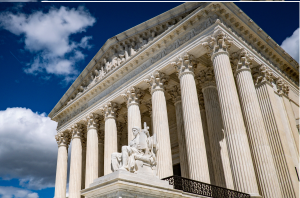 On June 13, the Supreme Court issued their much-anticipated ruling on the legal standing of several issues surrounding the FDAs procedures on the availability of the abortion pill drug, mifepristone. They rejected the challenge, maintaining the status quo on abortion pill access in this country.
On June 13, the Supreme Court issued their much-anticipated ruling on the legal standing of several issues surrounding the FDAs procedures on the availability of the abortion pill drug, mifepristone. They rejected the challenge, maintaining the status quo on abortion pill access in this country.
The Supreme Court ruled unanimously that the doctors who presented the case simply lacked legal standing to bring the case forward. Writing for the court, Justice Kavanaugh cited “Under Article III of the Constitution, a plaintiff’s desire to make a drug less available for others does not establish standing to sue. Nor do the plaintiffs’ other standing theories suffice. Therefore, the plaintiffs lack standing to challenge FDA’s actions.” Read the entire ruling HERE.
The Supreme Court did not rule on any of the arguments related to whether the FDA acted properly in its initial approval of the drug in 2000, or the relaxed rules issued in 2016 and 2021. I wrote more about those regulations in my March 2024 blog HERE, but in brief, this means that mifepristone is still available for use up to 10 weeks (increased from the initial approval of only 7 weeks), the number of visits required to obtain the drug is still only 1 virtual visit (the initial requirement was 3 in-person visits), and the health care provider who prescribes the drug does not have to be a licensed physician. States still retain the right to impose further restrictions than those federal regulations, and in Ohio, one does still have to have an in-person visit to obtain the abortion pills legally. Of course, unrelated to the Supreme Court ruling, that current restriction in Ohio could some day be in jeopardy with the passing of Issue 1 last year.
Erin Hawley, one of the attorneys who brought forward the lawsuit, said in a statement that they were “disappointed” with the decision. “We will continue to advocate for women and work to restore commonsense safeguards for abortion drugs — like an initial office visit to screen for ectopic pregnancies,” she said. She added that she is hopeful other cases with different arguments for standing could still make it to the Supreme Court.
Bishop Michael F. Burbidge, chairman of the U.S. Conference of Catholic Bishops’ Committee on Pro-Life Activities, expressed disappointment in the ruling, saying, “The sadness of a woman just being alone, unaccompanied — I don’t think people are aware of the harmful effects. It’s because we love women that we’re concerned that this pill remains so accessible.”
The Catholic Church remains committed to helping pregnant women in difficult circumstances. Check out the WALKING WITH MOMS IN NEED website and get a group started in your parish family.

